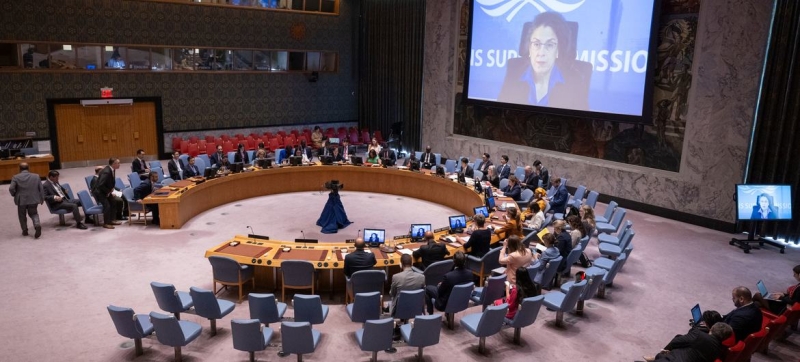
Deputy Special Representative for Libya Stephanie Koury (on screen) briefs the UN Security Council. The Security Council discussed political instability and escalation of tensions in Libya Peace and Security
Over the past two months, the situation in Libya has deteriorated in terms of political, economic and security stability, Deputy Special Representative for Libya Stephanie Kury said at a meeting of the UN Security Council.
According to her, unilateral actions by Libyan political, military and security forces are exacerbating tensions and disagreements in the country. The United Nations Support Mission in Libya (UNSMIL) is actively working to de-escalate the situation. Kury called on Libyan leaders to engage in dialogue and commit to the political process in the interests of the people of the country.
Human Rights Violations
In addition to efforts on the issue of unity of government and holding elections, UNSMIL continues its activities in the areas of economic, security, humanitarian assistance and human rights, said the Deputy Special Representative for Libya, who is also the Acting Head of Mission.
She noted that UNSMIL is working with all stakeholders to develop human rights capacity and strengthen the rule of law in Libya. However, there are ongoing reports of restrictions on civil society space across the country, arbitrary detentions, including of women and children, abductions, enforced disappearances, torture, deaths in custody and forced “confessions.”
Humanitarian situation
Kuri also reminded the Security Council that flooding occurred in southwest Libya on 16 August, forcing some 5,800 people to flee their homes. She added that UN agencies had mobilised humanitarian assistance to those affected.
The rapporteur stressed that since the start of hostilities in Sudan, the number of Sudanese refugees in the country had risen to 97,000 as of 11 August. At the same time, according to her, donors have provided only 21 percent of the funds needed for efforts to help Sudanese refugees in Libya.
